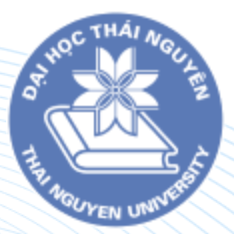Overview
Name: Vietnam National Academy of Music
Location: Located in Hanoi, the capital of Vietnam, the specific address is No. 45, Nguyen Van Chao Street, Thanh Xuan District, Hanoi.
Introduction: The Vietnam National Academy of Music is a higher education institution with music education and research as its main direction. The school is committed to cultivating music talents with professional knowledge and performance skills, and contributing to the development of Vietnam's music industry and culture. The school enjoys a high reputation in the fields of music performance, composition, music education, etc., and is one of the most important music education institutions in Vietnam.
Campus and number of students
Campus: The main campus of the school is located in Thanh Xuan District, Hanoi. The campus environment is beautiful and the facilities are complete, including modern teaching buildings, rehearsal halls, concert halls, libraries, etc.
Number of students: The school currently has about 1,500 students, including undergraduates, masters and doctoral students.
Educational philosophy
The school adheres to the educational philosophy of "art, innovation, and inheritance", focuses on cultivating students' practical performance and innovation abilities, encourages students to actively participate in music practice and scientific research projects, and improves their comprehensive quality.
Disciplines and departments
The Vietnam National Conservatory of Music has several departments, covering the following major disciplines:
Music Performance Department: Research vocal music, instrumental music (such as piano, violin, erhu, guzheng, etc.), and cultivate music performance talents.
Composition and Music Theory Department: Research composition, music theory, music analysis, etc., and cultivate composers and music theorists.
Music Education Department: Research music education, music teaching methods, etc., and cultivate music teachers.
Traditional Music Department: Research Vietnamese traditional music, folk music, etc., and cultivate traditional music performance and research talents.
Music Technology Department: Research music production, recording technology, music software, etc., and cultivate music technology professionals.
Western Music Department: Research Western classical music, modern music, etc., and cultivate Western music performance and research talents.
Ranking
The Vietnam National Conservatory of Music enjoys a very high reputation in the field of music education in Vietnam, and has been rated as one of the top music schools in Vietnam many times. The school is also well-known internationally, especially in Asia.
Cost
Tuition fees: The tuition fees for local Vietnamese students are about 2 million to 4 million VND (about 600 to 1,200 RMB) per semester. The tuition fees for international students will be higher, and the specific amount needs to be consulted by the school officials.
Other expenses: Including accommodation fees, textbook fees, instrument rental fees, living expenses, etc. The specific fees vary depending on personal circumstances.
Campus environment
Facilities: The school has modern teaching buildings, rehearsal halls, concert halls, libraries, etc. There are also multiple learning and leisure areas on campus, providing a good learning and living environment.
Accommodation: The school provides dormitories for foreign and international students. The dormitory conditions are good and equipped with basic living facilities.
Notes
Language requirements: Some courses may be taught in English, but most courses are still taught in Vietnamese. International students need to have a certain foundation in Vietnamese.
Application materials: Prepare complete application documents, including transcripts, letters of recommendation, personal statements, etc.
Visa and insurance: Make sure to handle the visa procedures required for studying in Vietnam and purchase appropriate insurance.
Cultural adaptation: Learn about Vietnamese cultural customs to better integrate into local life.
-

Đại học Thái Nguyên,Thai Nguyen University
-

Đại học Quốc gia Hà Nội,Vietnam National University, Hanoi
-

Trường Đại học Vinh,Vinh University
-

Trường Đại học Tây Nguyên,Tay Nguyen University
-

Đại học Huế,Hue University
-

Đại học Quốc gia Thành phố Hồ Chí Minh,Ho Chi Minh City National University
-

Trường Đại học Cần Thơ,Can Tho University,CTU
-

Trường Đại học Nha Trang,Nha Trang University
-

Trường Đại học Tây Bắc, Tay Bac University
-

Trường Đại học Công nghệ Giao thông Vận tải,University of Transport Technology
-

Mesoamerican University
-

Istmo University
-

Mariano Galvez University of Guatemala
-

Regional University of Guatemala
-

Galileo University
-

Francisco Marroquín University
-

Rafael Landívar University
-

University of the Valley of Guatemala
-

University of San Carlos of Guatemala
-

Technological Institute of Tlaxcala Plateau
-

Golfo University
-

Technological University of South Sonora
-

Technological University of Huejotzingo
-

Tizimín Institute of Technology
-

Chilpancingo Institute of Technology

